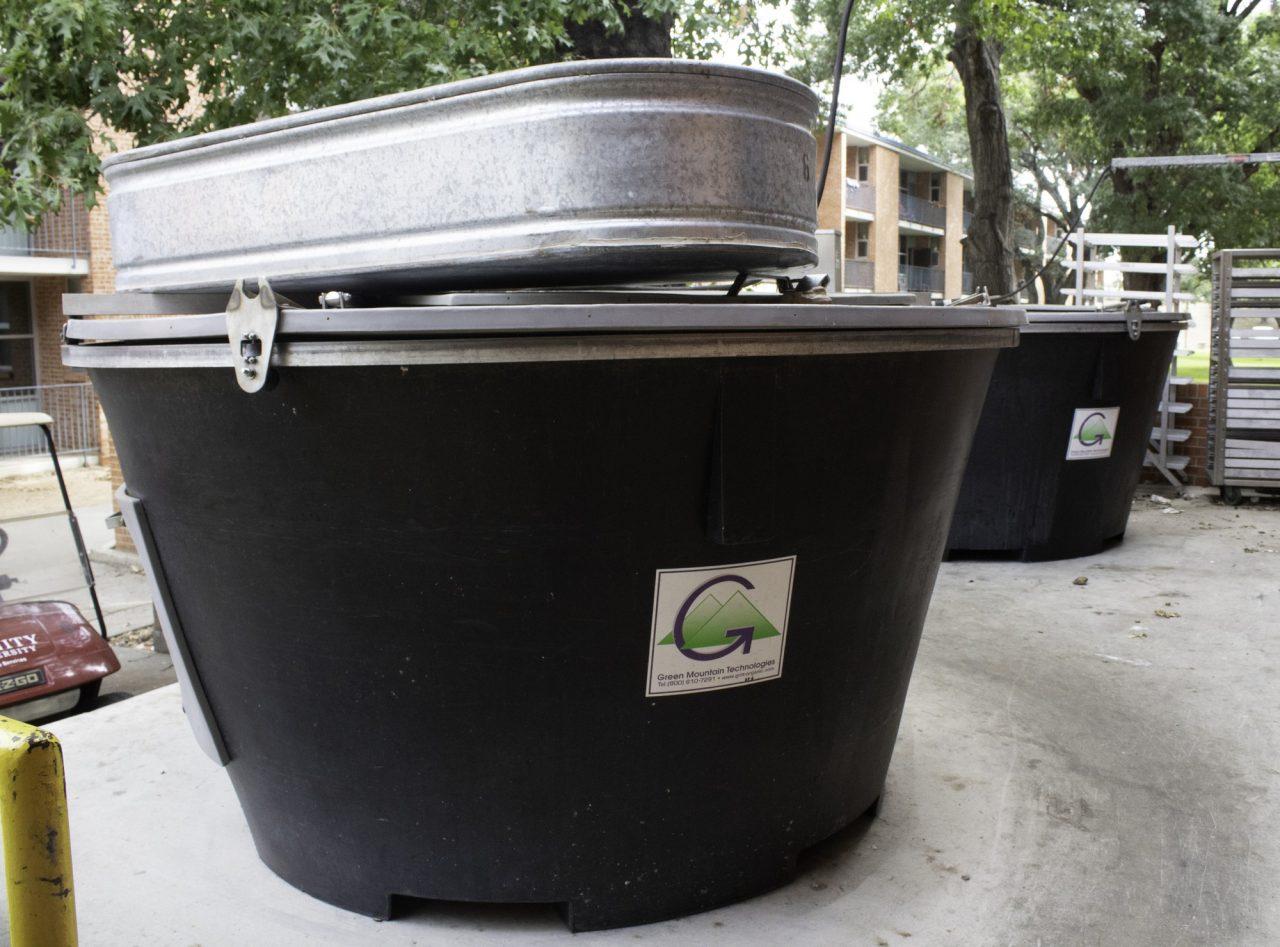File photo
Trinity’s sustainability committee says they are taking their time in searching for alternatives.
In Fall 2019, a university sustainability committee composed of faculty, staff and students began a search for replacement for the composting system after the Earth Tubs outside Mabee Dining Hall began to deteriorate due to old age. As of now, the sustainability committee is still searching for an alternative that will last as long as the Earth Tubs did.
Richard Reed, professor of anthropology, has been part of the committee since it was first started over a decade ago. The committee started Mabee composting with two Earth Tubs which were designed to compost pre-consumer, non-meat waste and had been doing so for over 10 years until the tubs broke down.
“It’s been a very successful program. Aramark’s been in charge of collecting all of their compostable material and putting it in the tub. What happened though was that over the 10 years, the plastic tubs began to disintegrate and so we stopped using them because they were dripping sludge and they were smelling,” Reed said.
Sharon Curry, sustainability coordinator, said that the sustainability committee’s membership is already somewhat predetermined — some are elected onto the committee, while others become members by virtue of their positions.
“It’s a combination of there were some mechanical failures that are causing some problems and it was determined that they were no longer functional and they were decommissioned at that point. Then we began the process of looking at options,” Curry said.
Curry says that other forms of composting, both on and off-site are options for Mabee.
“There are different things that you can do to compost on site. The process that we were using previously, which had been in place for over a decade, is in-vessel composting. Other campuses use windrow composting, I mean it just depends on space you have available and other resources.”
The sustainability committee is being careful in selecting their next composting alternative. One suggestion includes implementing students into the process.
“One way we opted to do that is to see if it might be viable as a senior engineering design project, so we’re looking at that right now. That’s a great opportunity for students to really use campus as a living laboratory to do some quality research and projects,” Curry said.
Curry says that in the best case scenario, they will be able to find a replacement that lasts just as long as the Earth Tubs, if not longer. The sustainability committee is working as carefully as they can to select a replacement. According to Curry, however, the composting the Earth Tubs dealt with was only a small fraction of food waste.
“The Earth Tubs, we were only using them for pre-consumer food prep scraps, so basically, the vegetable peelings and things like that. We were not handling any post consumer food waste. What would it look like if we started to handle post-consumer food waste? What would it take to do that? Those are other things that we want to take into consideration.”
Bella Spangher, sophomore president of Eco-Allies, suggests students should also compost individually. Her compost bin at home is a trashcan she bought at Walmart, drilled holes into, and added dirt, dry leaves and grass clippings.
“You can just go to Lowe’s or Home Depot or something and get one of those industrial buckets, and you can compost yourself in your room. As long as you have a lid you won’t smell it. You have to have a four to one ratio of dirt to compostables. However much a banana peel is, have four times that amount of dirt,” Spangher said.








